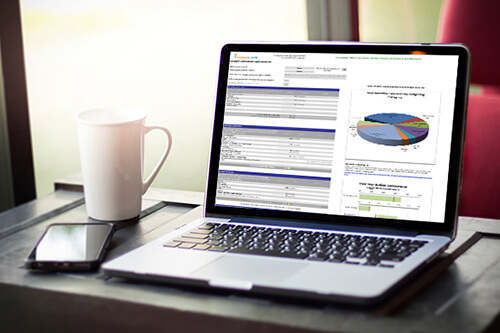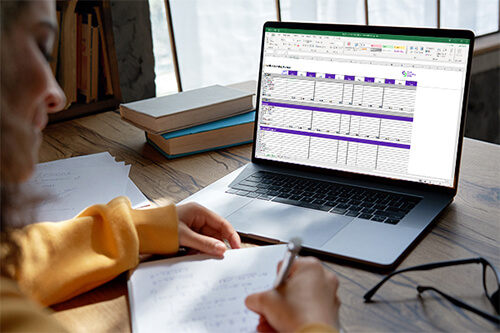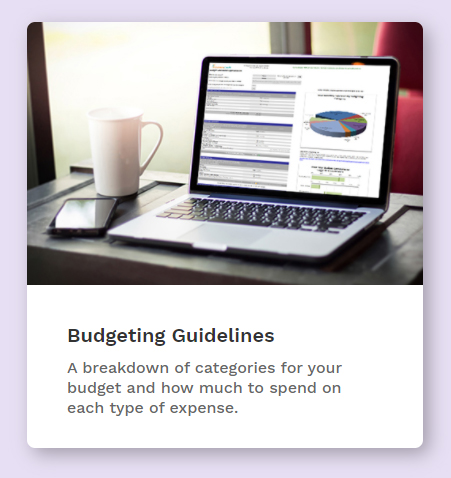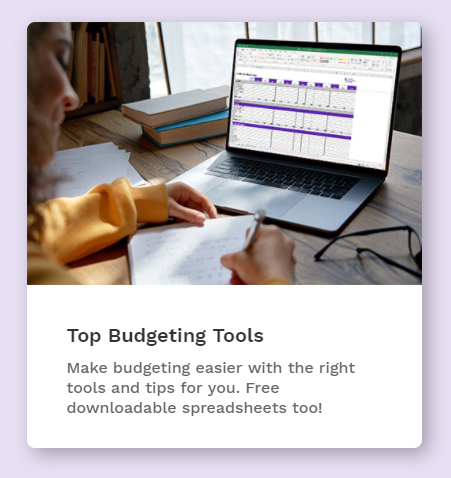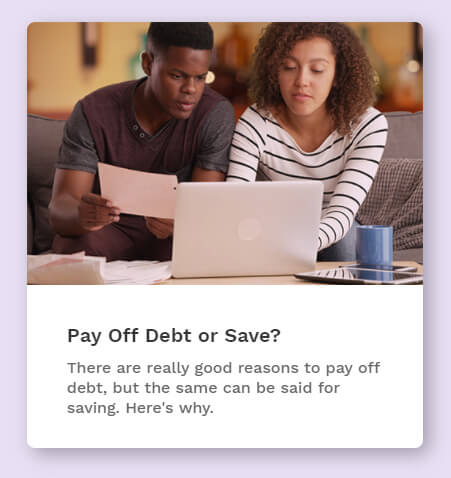Stop Living Pay Cheque to Pay Cheque – Break the Cycle with These 3 Steps
By Julie Jaggernath
 When you want to stop living pay cheque to pay cheque, before you create a budget, you need to take steps to break the cycle so that you can create a fresh start. A divorce or separation, unexpected car repairs or figuring out how to live on less household income are big adjustments. No one plans to live pay cheque to pay cheque; for most people it just seems to happen. Often it isn’t until we get far enough through our difficult situation that we can muster the energy to deal with the financial fallout.
When you want to stop living pay cheque to pay cheque, before you create a budget, you need to take steps to break the cycle so that you can create a fresh start. A divorce or separation, unexpected car repairs or figuring out how to live on less household income are big adjustments. No one plans to live pay cheque to pay cheque; for most people it just seems to happen. Often it isn’t until we get far enough through our difficult situation that we can muster the energy to deal with the financial fallout.
How Shifting Your Attitude, Tracking Your Spending & Using Cash Will Help You Get Back in Control of Your Pay Cheques
When you pay with cash and consider each purchase through the lens of what’s important to you, spending decisions become much clearer. Suddenly tracking becomes a way of looking at your goals and figuring out how to get more of what you want, rather than worrying about what you can’t afford to buy.
Here are 3 things you can do to break the cycle of living pay cheque to pay cheque:
1: Think About Money as a Tool
When you’re trying to make ends meet, you don’t think of money as a tool. An attitude shift is important if you want to turn this around and take back control of your pay checks. If thinking about money is stressful, to turn your situation around think about the role money plays in your life. What does it allow you to do? What does having too much debt or too many bills hold you back from?
Ask yourself what is truly important to you. Maybe it’s your house because you love having a home for your family and friends. Maybe you value experiences and going out and doing things either with friends or with your kids, e.g. taking in events, attending concerts or going on vacations.
Let go of the “should” and “should haves” you are burdening yourself with and any guilty feelings you may have. Allow what’s truly important to you to guide your spending decisions.
2: Track Your Spending – Find a System That Works for You
Each year non-profit credit counsellors across Canada counsel thousands of individuals and families about how to budget and manage their money better. When they suggest to someone to track their spending so that they can base a budget on accurate numbers, they often hear some excuses. Three popular ones (and why they don’t work), in no particular order, are:
- I have it all on my credit card or bank statements, so that should be good enough. (Keeping receipts is record keeping, not tracking.)
- I know where my money goes so writing it down is a waste of time. (Some expenses don’t need to be written down, but many do.)
- Sure, I’ve thought of doing that before…. (As they say, the proof is in the pudding.)
Tracking is an absolutely necessary step in regaining control of your money and finances, and it can be done in a number of ways. What works for one person might not work for another.
5 Steps to Help Track Your Spending
Decide if you want to stick with pencil and paper, jotting down what you spend in a notebook. Maybe you’re better with an app or a spreadsheet. You know yourself best, so get yourself organized with whatever will work for you.
Determine What You Will Track
Jotting down or recording all of your regular bills makes little sense to begin with; you know what those costs are. You need to keep track of the rest of your expenses, e.g. eating out, buying snacks, schools fundraisers, trips to big-box-buy-everything-stores, buying things to spruce up your home, and the list goes on.
For some people it’s easier to keep track of everything they spend for a few weeks; for others it’s easier to record their spending by where it’s done, e.g. the type of store or restaurant (e.g. take-out). If you shop at big box-type stores, you likely buy your groceries, household goods and personal care items all on one receipt. (That’s why keeping receipts is only the first step in tracking what you spend your money on.)
Do what helps you identify where your money is actually going. That’s the ultimate goal of expense tracking.
3: Put Your Credit Cards Away – Temporarily Stop Using Credit
Putting credit cards away includes taking your line of credit off of your debit card and removing all other easy access to credit. Yes, that includes your overdraft. You want to stop yourself from being able to “charge it” when your bank account runs dry.
Many people use credit as their safety net, but when a reliance on credit accumulates debt that you can’t afford to repay, it’s time to cut yourself off before your creditors do. Only paying with cash really forces you to think about each and every purchase, because once the money is gone, it’s gone.
What to Do Next – Create a Budget, Pay Off Debt, Start Saving for Emergencies
You probably already know what you should do to manage your money better, so once you’ve got your spending aligned with your values, it’s time to tackle the next step of creating a balanced personal budget:
- Create a realistic household budget that includes debt payments and emergency savings
- Track where you spend your money to identify costly spending patterns and habits
- Look for ways to decrease your expenses or increase your income
- Keep working on balancing your budget and paying off your debts
- Get professional budgeting and debt help if you can’t do it on your own
You’ll need to make some tough decisions and be patient because it does take time. However, follow through with your commitment to yourself. Tell your family and friends what you’re doing and ask for their support and encouragement. Work with a partner if you have one; it’s much easier than fighting all the time. There will be times you can’t spend like you used to, but a healthy financial future is worth the effort!
Stop Living Pay Cheque to Pay Cheque and Get Rid of Debt Stress & Financial Worries
Debt, stress about money and financial worries take their toll, so if you need help to stop living pay cheque to pay cheque, get it sooner than later. We’ve become so accustomed to relying on credit and accepting debt as the new normal, you might say red is the new black. But it doesn’t have to be that way. Don’t let debt be your normal – take back control of your finances, learn new money skills and build a strong financial future.
Last Updated on January 26, 2025
Related articles:
3 Ways to Get Out of Overdraft Protection Once and For All
How to Prepare for Unexpected Expenses
Living Successfully on One Income
